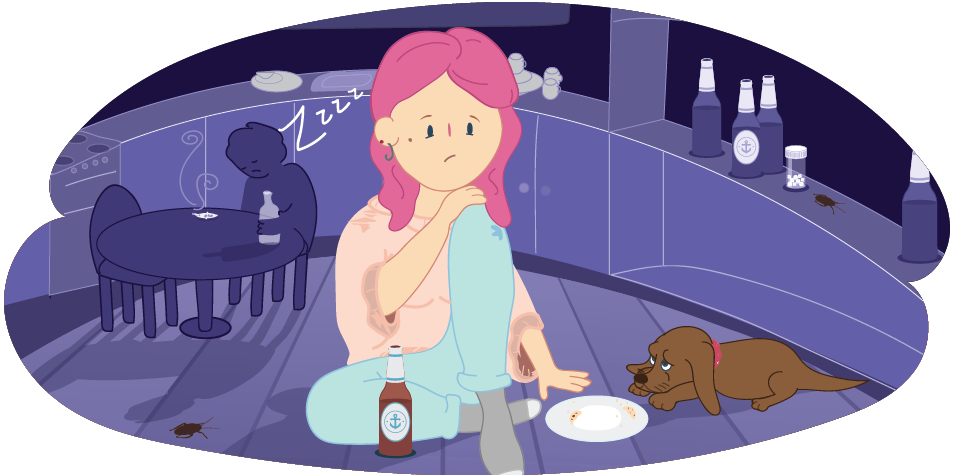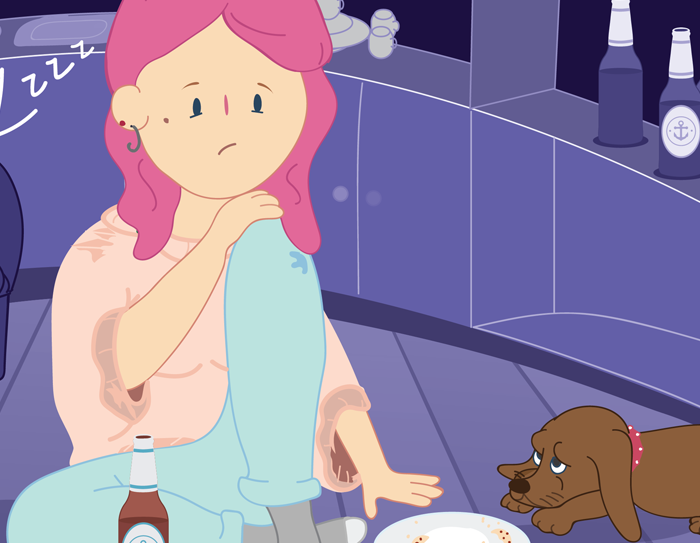Understanding child neglect
Neglect is when the person responsible for taking care of you isn’t giving you everything you need to grow happy and healthy.
Content Warning: this article contains violence and trauma related content that may be triggering or distressing.

What is neglect?
It’s when we don’t have our basic needs met by the person responsible for taking care of us. It could be our parent, carer or grandparent.
- Some parents or carers have trouble giving their kids the basics they need to be safe and grow up happy and healthy.
- It can happen when one or both caregivers find parenting hard, eg. because of addiction, mental illness, poverty or homelessness.
- Deciding what neglect is and isn’t can be hard. It’s defined by things such as the laws in the country where you live, culture and society.
Types of neglect
Child neglect can happen in different ways. Neglect may include just one type, a few different types or all of them.
What’s the opposite of neglect?
We need to be supported in different areas of our life when growing up. This is usually the job of our parent or caregiver. But it may also include our extended family, school and community.
Physical – shelter, food, clothing, hygiene, sleep
Security – a safe place to live, someone to take care of you
Affection – cuddles, kisses, hugs, warmth
Responsibility – being included in decisions
Guidance – teaching life lessons, instilling values
Independence – exploring the world in a safe way
Stimulation – praise, play, games, having fun
Approval – understanding and acceptance
Neglect happens over time. It usually isn't a one-off event.
What are the signs of neglect?
Here are some signs that may mean a young person is being neglected:
Often hungry and without enough food to eat
Not enough clothes; worn out or dirty clothes
Very dirty, unwashed or have body odour
Untreated injuries, illnesses or infections
Is frequently absent from school or doesn’t attend at all
Is left alone for long periods without supervision
Living in very dirty or unsafe conditions
May steal or beg for food, clothing or money
Being ignored or rejected by parent or carer
Parent or carer is abusing alcohol or drugs
If you are being neglected…
You might feel guilty, sad, scared, or hurt. But just remember that:
There are people you can talk to
Here’s a list of some people you could try talking to. Remember, if at first you don’t get help, keep trying until you find somebody who will help you.
Older relative or friend
Kids Helpline - 1800 55 1800
Teacher or school principal
1800 RESPECT - 1800 737 732
Doctor or nurse
Youth worker
School counsellor
Check these out too:
Physical violence and abuse
Violence is never okay. If you or someone you know is experiencing ...
READ MEUnderstanding emotional abuse
When an adult is hurting you with their words or actions over ...
READ MEUnderstanding sexual abuse
Sexual abuse is never ok. In this article we focus on what ...
READ MEWhat is abuse
Abuse takes many forms and there isn’t one single way that ...
READ METalking helps! We’re here for you.
No problem is too big or too small.
We're here 24 hours a day, 7 days a week






